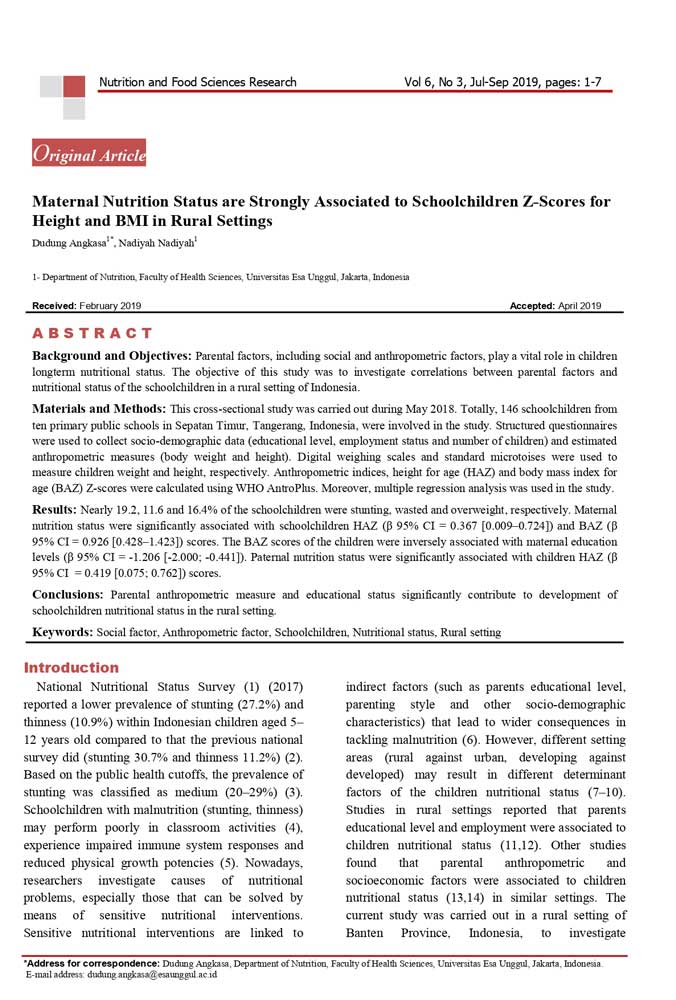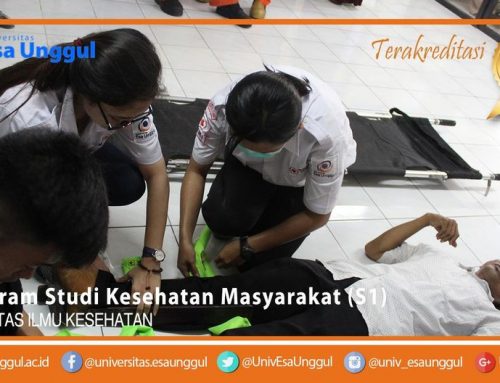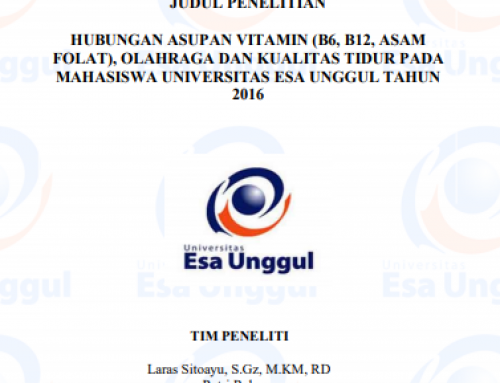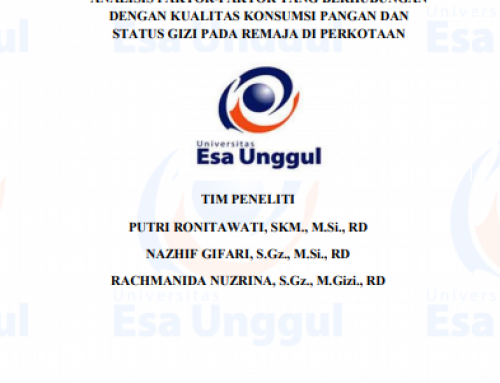 Deskrpisi :
Deskrpisi :
Background and Objectives: Parental factors, including social and anthropometric factors, play a vital role in children longterm nutritional status. The objective of this study was to investigate correlations between parental factors and nutritional status of the schoolchildren in a rural setting of Indonesia. Materials and Methods: This cross-sectional study was carried out during May 2018. Totally, 146 schoolchildren from ten primary public schools in Sepatan Timur, Tangerang, Indonesia, were involved in the study. Structured questionnaires were used to collect socio-demographic data (educational level, employment status and number of children) and estimated anthropometric measures (body weight and height). Digital weighing scales and standard microtoises were used to measure children weight and height, respectively. Anthropometric indices, height for age (HAZ) and body mass index for age (BAZ) Z-scores were calculated using WHO AntroPlus. Moreover, multiple regression analysis was used in the study. Results: Nearly 19.2, 11.6 and 16.4% of the schoolchildren were stunting, wasted and overweight, respectively. Maternal nutrition status were significantly associated with schoolchildren HAZ (β 95% CI = 0.367 [0.009�0.724]) and BAZ (β 95% CI = 0.926 [0.428�1.423]) scores. The BAZ scores of the children were inversely associated with maternal education levels (β 95% CI = -1.206 [-2.000; -0.441]). Paternal nutrition status were significantly associated with children HAZ (β 95% CI = 0.419 [0.075; 0.762]) scores. Conclusions: Parental anthropometric measure and educational status significantly contribute to development of schoolchildren nutritional status in the rural setting.
Universitas Esa Unggul
Penulis :
- DUDUNG ANGKASA, S.Gz,M.Gizi
- NADIYAH, S.Gz, M.Si
Download :




